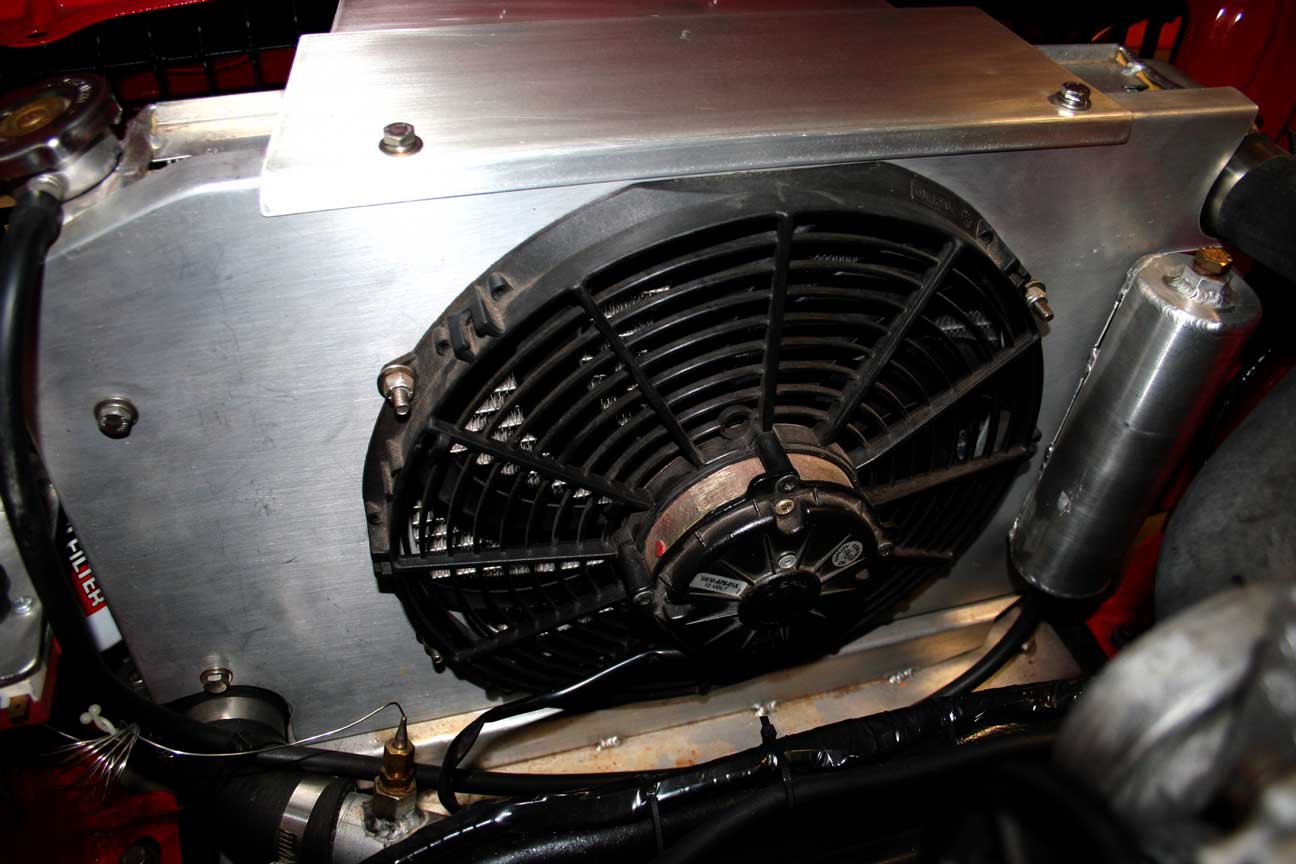Cooling System
In order to ensure proper cooling of the
L32, the radiator
is an all aluminium unit from Griffin Thermal Products. This is the same
design as those used by NASCAR except for the dimensions, which
are a bit smaller. These radiators are state-of-the art and
are quite pricey. However, this is the only way to keep
things cool.

Behind the radiator is a shroud
made from a sheet of aluminium. It is shaped to fit about
an inch or two from the back of
the radiator and sealed by heavy heat resistant foam. This forces air to exit
through the fan opening
at all times. The fan is secured to special threaded
pedestals on the back of the tanks on either side of the
radiator. Like I said before, these radiators are NASCAR
grade and are a work of art just to look at. Too bad it is
covered by the shroud!
Attached to the shroud is a SPAL
electric fan. SPAL fans are extremely efficient and flow
tremendous amounts of air for their size due to the blade design
and high quality fan motor. You also pay for all
that high performance! They are so good the boys in Maranello
install these fans on those cars with the little prancing horse
on the hood.
The fan is thermostatically controlled by a
sensor fitted to the bottom coolant hose. This sensor is
connected to a capillary tube connected to the fan controller. The
controller is
electrically wired to a relay that switches heavy voltage used to run the
fan. This is done to put less stress on the controller.
The controller has a knob that
when turned allows for 'dialing in' the moment the fan kicks in.
Normally, the L32 likes to run at around 195 degrees Fahrenheit.
The fan is set to kick in around 215 degrees Fahrenheit and turns off at around 190 degrees Fahrenheit. The
coolant used is a 50/50 mix of the green stuff with distilled
water and a bottle of WaterWetter just for good measure. The
system is so efficient that the fan only runs when in heavy
stop-and-go traffic or when the engine is left to idle for a long period of
time. At speed, the fan does not run at all. Then
when the fan does run, it does so only for a few moments. Heat is extracted
quickly!
To the right of the shroud is an aluminium
overflow tank. This tank holds any coolant that expands as
the system becomes operational and is connected via a rubber
hose to the radiator's filler neck.
|
![]()